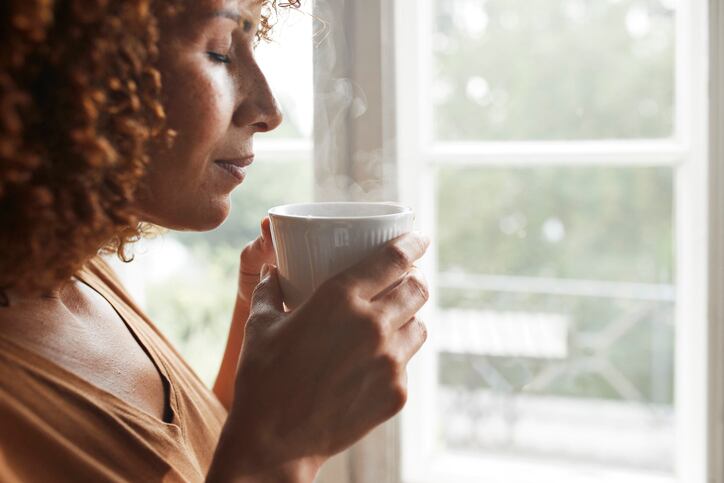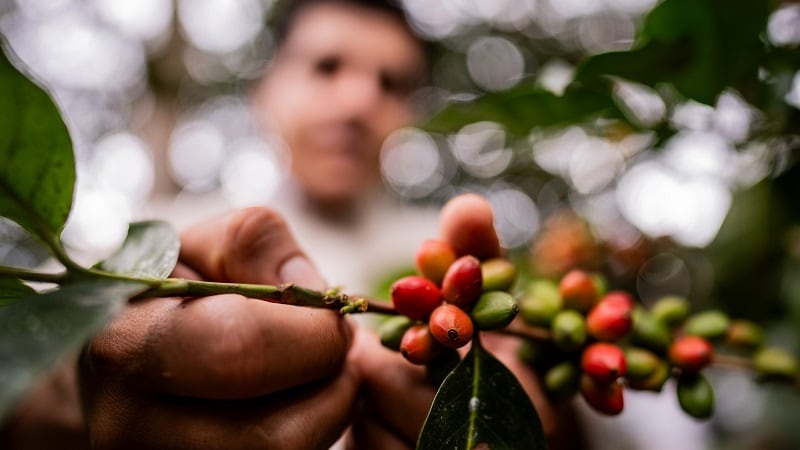Why does coffee wake us up? Is it because of the caffeine… or could it be that our brains are tricked by our expectations?
A group of scientists, led by Mateja Lesar of the Faculty of Information Studies in Novo Mesto, Slovenia, recruited 20 habitual coffee drinkers who received either caffeinated or decaffeinated coffee (as a placebo) in a double-blind, randomized fashion.
The two drinks were identical, save for the presence of caffeine.
Once the participants had drunk their coffee, the researchers measured cognitive performance, cardiovascular responses and whole-head EEG during rest and during an auditory-oddball task.
They expected to find significant differences between caffeine and placebo groups: but (with the exception for resting-state alpha power) the cognitive functioning between the two groups were ‘not significantly different’.
How does caffeine ‘wake you up’?
The physiological and psychological effects of caffeine are well-studied. Caffeine activates the sympathetic nervous system by inhibiting adenosine: which temporarily reduces the feeling of sleepiness and tiredness. It also affects the heart rate and blood pressure of drinkers.
As a result, coffee is well-loved by millions as an essential part of their morning ritual.
But what exactly triggers behavioral and physiological responses? Is it the ingestion of caffeine itself or the ritual of drinking coffee?
To tease this out, the researchers chose to pit caffeinated coffee against decaffeinated coffee: ensuring participants didn’t know which they were drinking (the taste of decaf is virtually indistinguishable).
Meanwhile, decaffeinated coffee contains most of the same compounds in coffee, with the exception of caffeine.
One of the tests the Slovenian team used to test cognitive performance was an auditory oddball task: where they measured reaction times (specifically, the time it took for a subject to press the button once an oddball beep was played).
While reaction time is not a direct measure of cognition, it is strongly correlated with several cognitive processes such as decision-making and sustained attention.
They found a reduction of average reaction time after ingestion for both groups: and, in fact, the decrease in reaction time was found to be statistically significant only in case of the caffeine group.
But the Slovenian team is not the first to suspect caffeine’s role is overrated. Researchers from the University of Montana studied 100 male undergraduates in a 1996 study, finding that the subjects were highly influenced by their expectancies around coffee consumption, regardless of actual caffeine content. They found that expectancy and caffeine content appeared ‘equally powerful’.
The main limitation of the Slovenian study was its sample size, acknowledged by the authors, who hope larger scale studies can be carried out in the future. The study only covered habitual coffee drinkers: meaning the results might be different in people who don’t usually drink coffee or consume caffeine.
“Our study highlights the ‘ritual’ dimension of enjoying coffee: stimuli closely mimicking coffee can produce cognitive and physiological responses markedly similar to those of real coffee,” note the researchers.
“We argue for further study of habituation and conditioning effects in response to caffeine vis-à-vis placebo, investigating how the choice of placebo affects the responses of habitual coffee consumers.”
Source: The complexity of caffeine’s effects on regular coffee consumption: https://doi.org/10.1016/j.heliyon.2024.e41471


